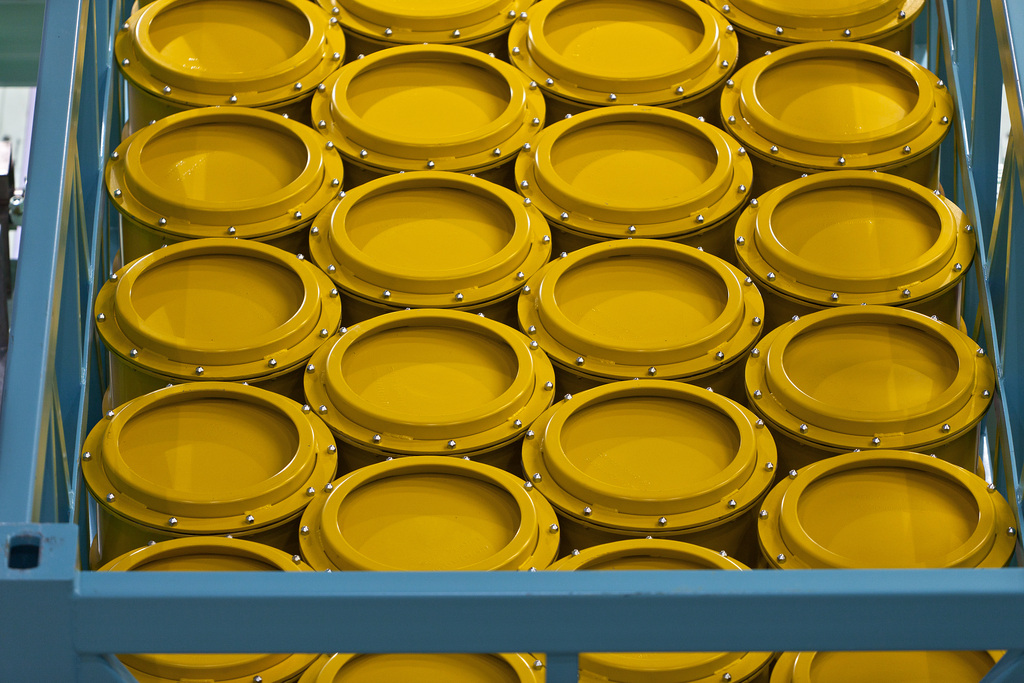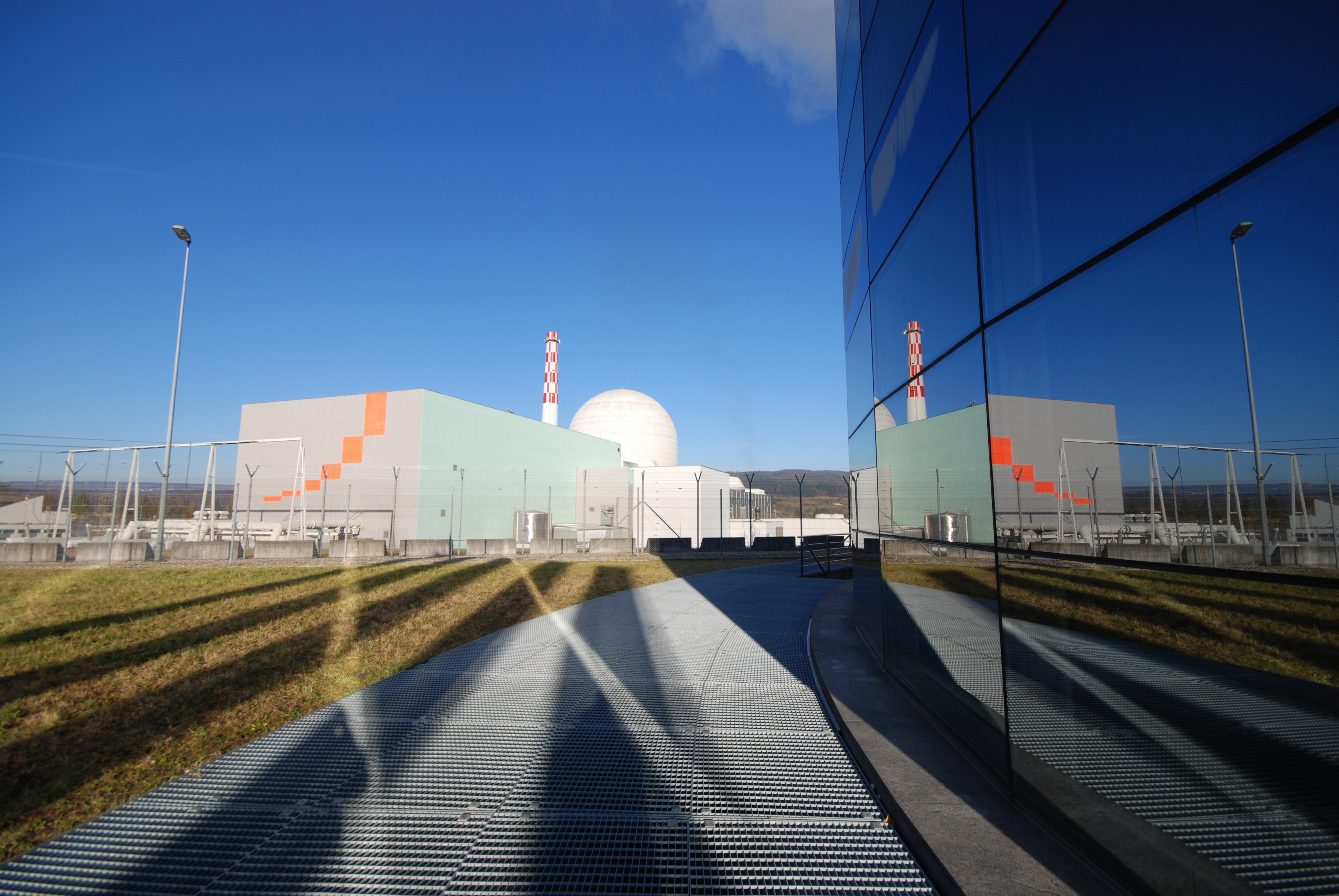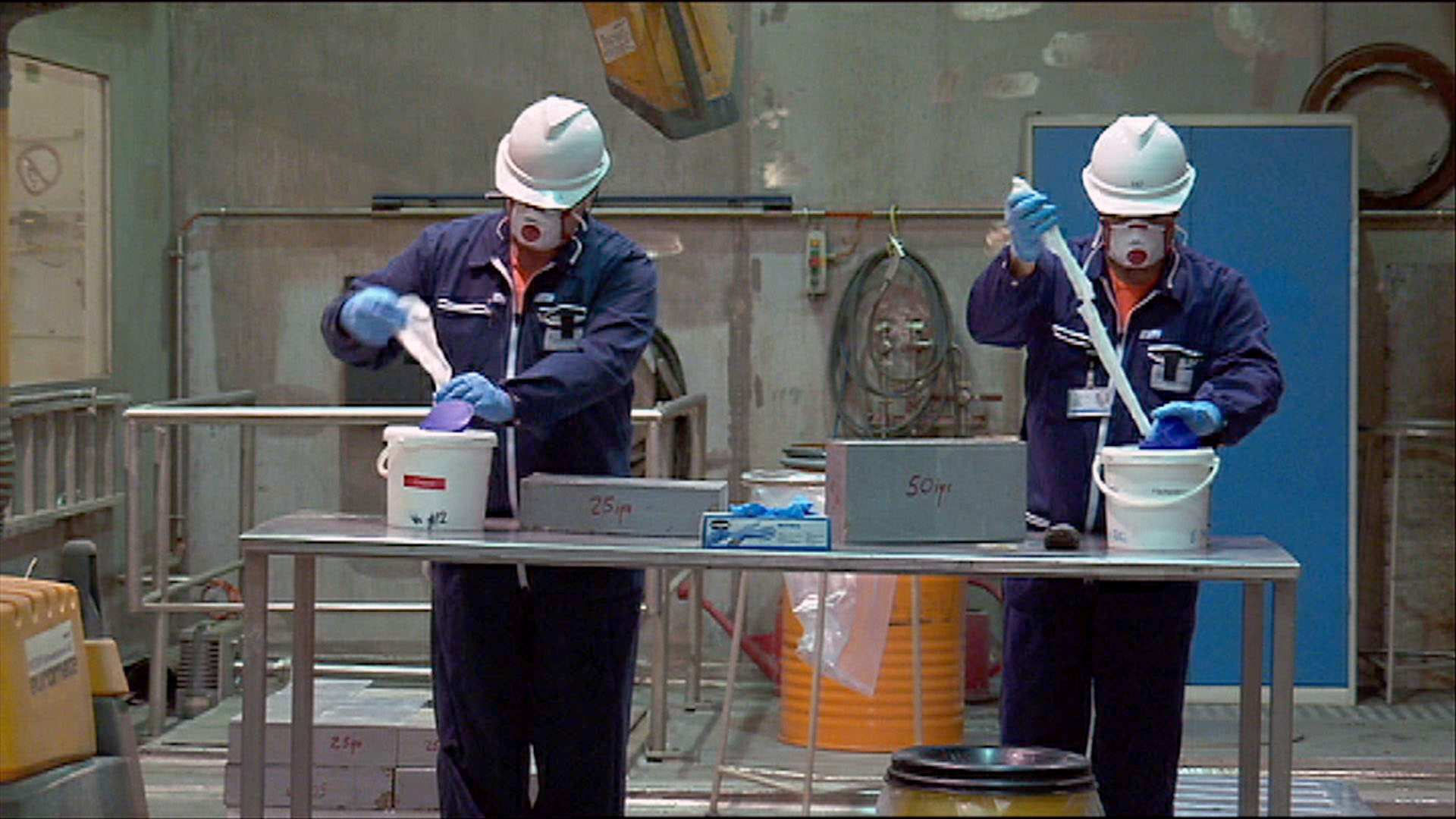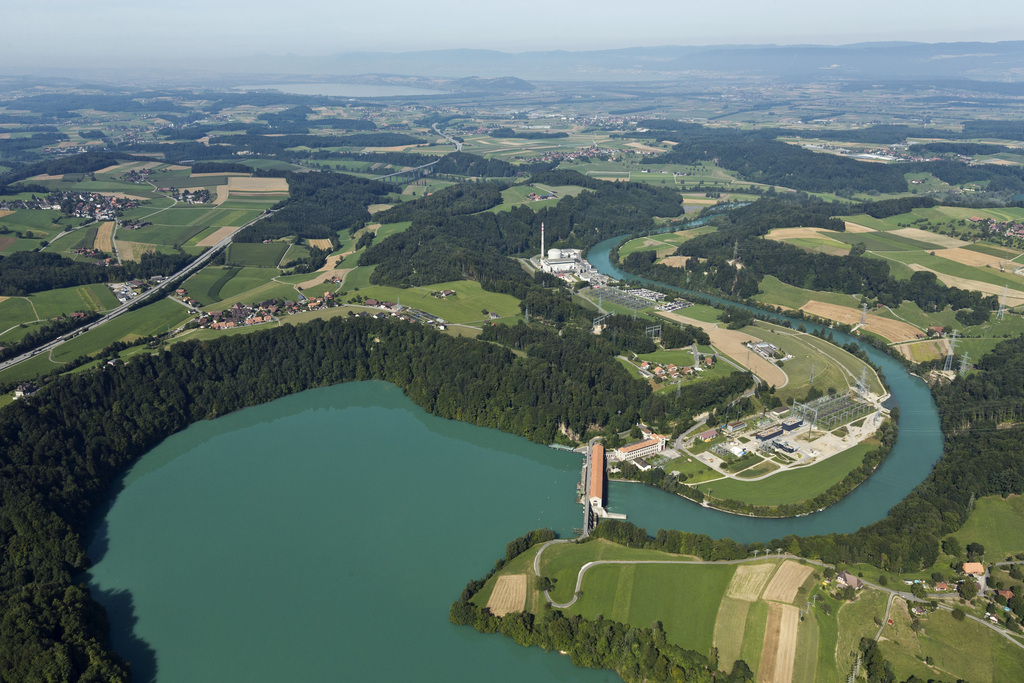How two people fought to shut down a nuclear plant

The shocking Fukushima nuclear disaster, two angry Swiss citizens, one idea, one vote. This is the story behind the popular initiative to force the closure of the ageing Mühleberg nuclear plant, which will be decided by canton Bern voters on May 18.
It all started thousands of miles away. On March 11, 2011 a devastating tsunami triggered a meltdown at the Japanese nuclear power plant in Fukushima. As a result inhabitants living up to 20 kilometres from the stricken plant were forced to abandon their homes for safety.
“That was when I realised I had to do something because the situation can’t go on like this anymore,” said Franziska Herren who lives at Wiedlisbach, a village at the foot of the Jura hills 45 kilometres from Mühleberg nuclear power plant as the crow flies.
For years the second-oldest nuclear power plant in the world has been criticised because of safety concerns (see box).

More
The rocky road to changing the law
The 47-year-old mother of two, who runs a fitness centre, wrote a pamphlet which she handed out urging local residents to think about a life without nuclear power plants.
Walter Kummer, a 53-year-old former boss of a metalwork company, heard about it and contacted Herren. Together they decided to launch a people’s initiative at a cantonal level calling for the immediate shutdown of the Mühleberg plant, this despite having no prior experience or contacts.
Independence essential
“When you see what happened at Chernobyl and Fukushima and the consequences of those disasters for humans and the environment, it’s no longer a discussion about safety,” said Franziska Herren. “We had to act and literally jumped in at the deep end.”
Under the law on political rights, in canton Bern an initiative committee must have at least seven members. In no time at all the two activists managed to find five people who accepted their request.
“It was very important for every member of the initiative committee to be independent. We are not the hardliners who have been demanding the closure of Mühleberg for the past 40 years,” Herren pointed out.
Legally watertight
While Herren took over the media work and the networking, Kummer immersed himself in the legal aspects of the initiative text. Finally they managed to present a text with watertight legal arguments that pro-nuclear supporters were unable to stop.
Kummer financed the campaign and paid Herren part of her salary as she had to reduce her involvement at the fitness centre in the run-up to the vote.
But no sooner had they started that the first obstacles started to emerge. The deadline for collecting the 15,000 signatures required for a cantonal initiative was short: only six months instead of the usual 18 that apply to federal initiatives which require 100,000 signatures.
The launch was a dismal failure. “We started with the idea of collecting the signatures online. But after three weeks it was clear that this wasn’t working,” said Herren. So instead they decided to employ professional signature collectors to speed things up.
“Within three months, we had collected 17,500 signatures, of which about 15,500 were valid,” said Kummer. The initiative was up and running.
They also played their part in this initial success. Wearing top hats with paper messages declaring “Mühleberg off the grid initiative”, the pair collected around 6,000 signatures. Being rather shy, they opted for a defensive collection strategy, explained Herren. They didn’t approach people directly but waited until people came to them.
She said their simply message also helped, contrasting with those that use abstract titles and more complex themes, particularly at the federal level, which can be overwhelming for citizens.
Civic disillusionment
The two novices learned a great deal from this experience.
“You have to gather a lot of information. And we were also aware of how much we did not know and were sometimes really shocked,” said Herren. “For example, the fact that there’s no insurance against damage in the event of a nuclear power plant disaster.”
Admittedly, the power plant operators would be liable to pay out up to a billion Swiss francs in the event of a disaster. “But population density is much higher in Switzerland than in Fukushima,” argued Kummer.
Herren added: “Many are unaware just how little some people care about our well-being.”
For both of them, the initiative was an important learning process not only in terms of understanding politics but also personal development. This was particularly true for Herren who was more in the limelight.
“It was a big challenge for me to stand up in public to front the campaign. Thanks to the initiative, I learned to stand up in front of people and to argue but also to listen to them,” she said.
Herren was delighted that the Bern state chancellery took one and a half years to submit the initiative to the cantonal parliament. “This gave me time to get comfortable with the arguments. If there had only been six months, I wouldn’t have been able to argue so well against the opponents,” she added.
Self-confidence
She reckons that the confidence she gained will also serve her well in the rest of her life. She is currently considering launching a people’s initiative for clean water: “But I also learned that the opinions of those who disagree with us were not directed against me personally.”
The fact that the authorities took the maximum period of time to process the initiative played into their hands in another way.
“During this time, the electricity market in Europe changed dramatically. Thanks to low-priced wind power from Germany, there was suddenly an oversupply,” said Kummer. From then on, they ran their campaign under the slogan: “There’s enough power!”.
After 44 years in operation, Mühleberg near Bern is the second oldest nuclear power plant in the world.
Citing serious safety problems, critics have been calling for years for the plant near the capital Bern to be shut down.
The most important defects: cracks in the core casing, emergency cooling, earthquake resistance, flood risk.
After Fukushima, the Swiss Federal Nuclear Safety Inspectorate (ENSI) forced Swiss energy company BKW to undertake CHF400 million of retrofitting. Otherwise, Mühleberg would have had to shut by 2017.
BKW wants the nuclear power plant shut down in 2019 “for economic reasons” and is prepared to invest CHF15 million in additional safety measures. ENSI’s response to this is pending.
In Switzerland, there are five nuclear power plants: Mühleberg, Beznau I and II, Gösgen and Leibstadt. They cover about 40% of Switzerland’s electricity needs.
In addition, the decommissioning of a nuclear power plant requires considerable preparation and time.
Opponents have formed a counter-committee, comprising representatives of the centre-right parties and the economy. Their slogan against the initiative is that it is “useless, expensive and out of touch”.
Their main argument is that the nuclear plant operator wants to shut down the Mühleberg nuclear plant in 2019 anyway.
If the nuclear power plant has to be shut down immediately, compensation claims could run into millions.
In addition, the decommissioning of a nuclear power plant requires considerable preparation and time.
(Translated from German by Vincent Landon)

In compliance with the JTI standards
More: SWI swissinfo.ch certified by the Journalism Trust Initiative















You can find an overview of ongoing debates with our journalists here . Please join us!
If you want to start a conversation about a topic raised in this article or want to report factual errors, email us at english@swissinfo.ch.